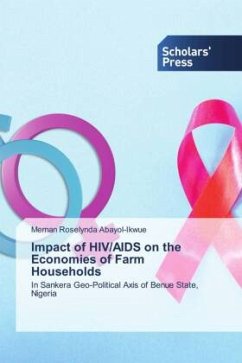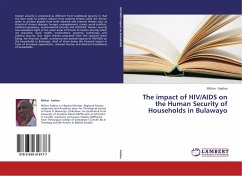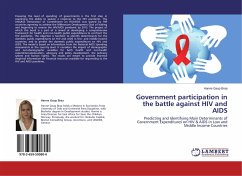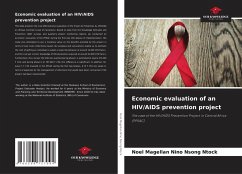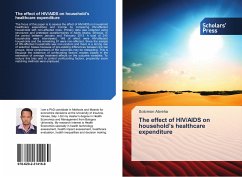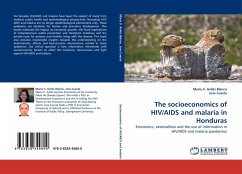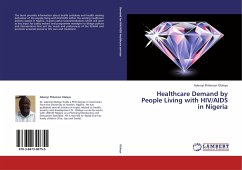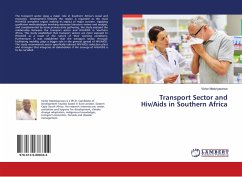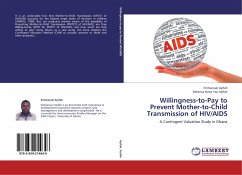
The Economic Impact of the HIV/AIDS Epidemic across Countries
Factors Explaining the Spread of the Disease
Versandkostenfrei!
Versandfertig in 6-10 Tagen
39,99 €
inkl. MwSt.

PAYBACK Punkte
20 °P sammeln!
This book presentS empirical evidence towards the debate over the impact of HIV infection across countries on economic growth and supports the hypothesis that HIV prevalence has lowered the rate of growth of income per capita in a group of developed and developing nations. However, it seems that at low stages of the epidemic, the HIV infection has not impacted economic performance, as suggested in our analysis for Latin America and Muslim countries. These results are consistent with the current and vast literature on HIV/AIDS, human capital and economic growth. Empirical work is useful in prov...
This book presentS empirical evidence towards the debate over the impact of HIV infection across countries on economic growth and supports the hypothesis that HIV prevalence has lowered the rate of growth of income per capita in a group of developed and developing nations. However, it seems that at low stages of the epidemic, the HIV infection has not impacted economic performance, as suggested in our analysis for Latin America and Muslim countries. These results are consistent with the current and vast literature on HIV/AIDS, human capital and economic growth. Empirical work is useful in providing more elements to policy makers in the decision-making process. Nonetheless, there are many unanswered questions on this subject and the use of innovative econometric techniques, based on more accurate samples to determine the number of people infected at a point in time, will provide more understanding of the economic impact of HIV as it continues to affect humanity on a global scale.



